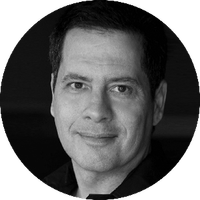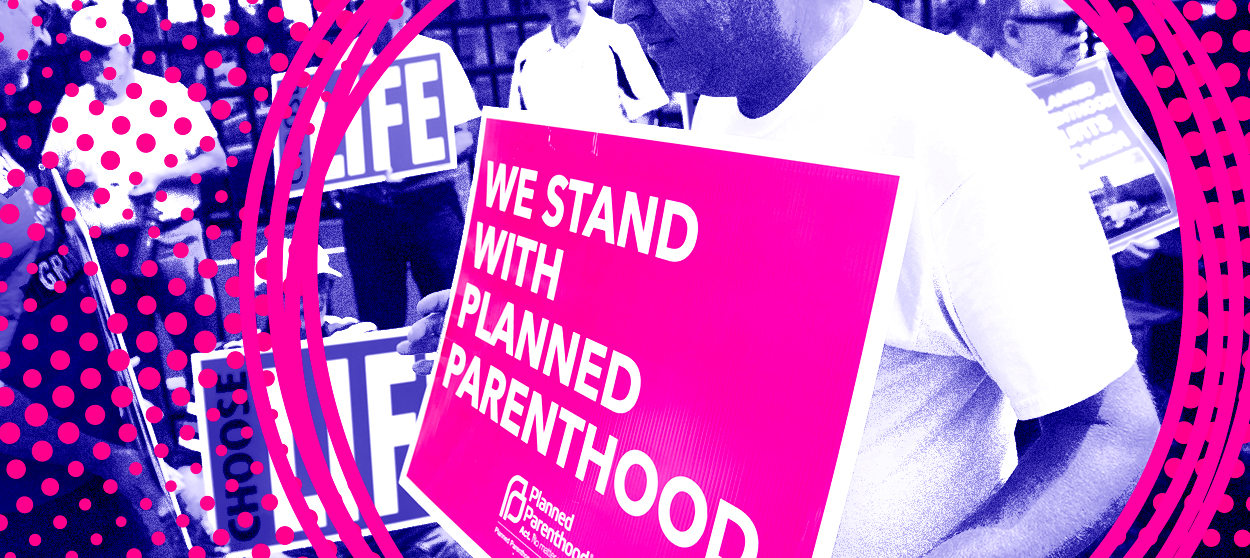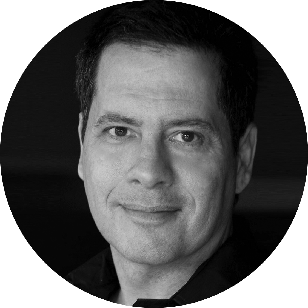How Roe v. Wade benefits men
The right to abortion is a lynchpin of modernity. So why aren't men fighting harder for it?


A free daily email with the biggest news stories of the day – and the best features from TheWeek.com
You are now subscribed
Your newsletter sign-up was successful
Fellas: Did you watch the World Cup? Did you catch When They See Us? How do you feel about lower crime rates, and fewer kids born into poverty? Paternity leave and free access to screening for sexually transmitted diseases? How about being able to talk to your wife about Stranger Things instead of sitting across a table from her in silent, uncomprehending alienation? Pretty cool, isn't it?
So why aren't we speaking up a little more about abortion rights?
When I contemplate the compounding benefits of Roe v. Wade, to me and everyone I know, the world before it looms like a primordial, three-martini swamp, barely capable of supporting life as we know it. The distance traveled since 1973, when half the population was excluded from full participation in the cultural, civic, economic and political life of the country so that men could enjoy — what, exactly? — can feel as unclosable to me as the space between stars.
The Week
Escape your echo chamber. Get the facts behind the news, plus analysis from multiple perspectives.

Sign up for The Week's Free Newsletters
From our morning news briefing to a weekly Good News Newsletter, get the best of The Week delivered directly to your inbox.
From our morning news briefing to a weekly Good News Newsletter, get the best of The Week delivered directly to your inbox.
Roe may not have toppled the patriarchy, but it gave its foundation a profound and reverberating shake, not only freeing countless women from the near-slavery of forced child birth and embittering marriage, and large numbers of men from the heart-hardening and soul-crushing behaviors required to keep the machinery of subjugation functioning, but even much of the wider culture from a narrow-minded and misogynistic self-conception. The right to abortion is a lynchpin of modernity.
The recognition of women's reproductive rights, and by extension their full-fledged humanity, was an event that, like the Voting Rights Act or the New Deal before it, seemed to mark a before-and-after point in our fitful national progress. Yet, just like those once-immovable milestones, Roe v. Wade is now under concerted, ferocious attack.
We are speeding backwards toward the grim old days, on a bus hijacked by men who refer to blastocysts as "babies," their wives as "mother," and credibly accused sexual predators as "Mr. President." Roe has already been effectively overturned in dozens of states, and the federal right to abortion is hanging on by the narrow width of a thinning, bleached, and over-combed hair.
So-called "personhood" and "heartbeat" bills not only lay the foundation for banning abortion and contraception, they will eventually, like Roe, exert broad influence across our legal, economic, environmental, and political landscape. It will be an unmitigated disaster if Roe's opponents succeed, first and foremost for women, of course, but also for the nation as a whole. Roe didn't merely change reproductive law; it contributed to sea changes in public health, politics, education, crime, advertising, migration, sports, art, and entertainment. It freed women to imagine futures that had been unavailable to them for millennia, and men to share in the many fruits of those futures.
A free daily email with the biggest news stories of the day – and the best features from TheWeek.com
So why are we responding to this emergency by asking women to take on yet another unpleasant task made unpleasant by men: the fight against the many forces committed to denying them bodily autonomy? Who do we think we are? No, really. Who. Who do we imagine ourselves to be, exactly?
I am only able to write this piece, to afford to do work I enjoy as a writer and a teacher, because my wife has a career made possible by delaying childbirth to enter the workforce, and before that by being able to imagine a life she couldn't have had prior to 1973.
I was able to delay becoming a father until I was ready because former partners exercised their right to abortion. I am a better father to the children I have than I possibly could have been to the children I didn't.
I am able to spend much more time with my daughters than my father spent with me. Even the quality of our time together — the things we do and talk about, the way we talk about them — is less constrained by gender expectations than it would have been 50 years ago. The same is true for the way we all relate to each other, isn't it?
It's hard to overstate how central the securing of women's reproductive rights has been to the blossoming of a culture that, while still new, fragile, and profoundly, maddeningly misogynistic, is vastly more humane — and interesting! — than it was in 1973, thanks to the many women who fought so hard to make it a reality.
Any man who is spending, or has spent, his 20s going to law school, or playing in a band without the demands of raising a family should consider that there might have been something more to his success than native intelligence, hard work, or even class or race privilege. Any man who was able to delay becoming a dad until he'd figured out how to open a bank account has a few hundred-thousand feminists to thank.
And any man whose life has been made better by women, well ... I simply can't imagine how much more troubled and less fulfilling my life would be if the many women who have made that life possible, who have guided, informed and enriched it in countless ways, known and unknown to me, had not had the right to abortion. There is no way I would have been able to shape my life in any meaningful way without those myriad friends, partners, mentors, employers, colleagues, and strangers being able to shape their own.
I owe everything to them, and to the laws that protect their rights.
Peter Birkenhead is a writer who lives in Washington, D.C. His work has appeared in The Washington Post, The Daily Beast, the Los Angeles Review of Books, and other publications. He is the author of Gonville, a memoir published by Simon & Schuster.
-
 Why are election experts taking Trump’s midterm threats seriously?
Why are election experts taking Trump’s midterm threats seriously?IN THE SPOTLIGHT As the president muses about polling place deployments and a centralized electoral system aimed at one-party control, lawmakers are taking this administration at its word
-
 ‘Restaurateurs have become millionaires’
‘Restaurateurs have become millionaires’Instant Opinion Opinion, comment and editorials of the day
-
 Earth is rapidly approaching a ‘hothouse’ trajectory of warming
Earth is rapidly approaching a ‘hothouse’ trajectory of warmingThe explainer It may become impossible to fix
-
 The billionaires’ wealth tax: a catastrophe for California?
The billionaires’ wealth tax: a catastrophe for California?Talking Point Peter Thiel and Larry Page preparing to change state residency
-
 Bari Weiss’ ‘60 Minutes’ scandal is about more than one report
Bari Weiss’ ‘60 Minutes’ scandal is about more than one reportIN THE SPOTLIGHT By blocking an approved segment on a controversial prison holding US deportees in El Salvador, the editor-in-chief of CBS News has become the main story
-
 Has Zohran Mamdani shown the Democrats how to win again?
Has Zohran Mamdani shown the Democrats how to win again?Today’s Big Question New York City mayoral election touted as victory for left-wing populists but moderate centrist wins elsewhere present more complex path for Democratic Party
-
 Millions turn out for anti-Trump ‘No Kings’ rallies
Millions turn out for anti-Trump ‘No Kings’ ralliesSpeed Read An estimated 7 million people participated, 2 million more than at the first ‘No Kings’ protest in June
-
 Ghislaine Maxwell: angling for a Trump pardon
Ghislaine Maxwell: angling for a Trump pardonTalking Point Convicted sex trafficker's testimony could shed new light on president's links to Jeffrey Epstein
-
 The last words and final moments of 40 presidents
The last words and final moments of 40 presidentsThe Explainer Some are eloquent quotes worthy of the holders of the highest office in the nation, and others... aren't
-
 The JFK files: the truth at last?
The JFK files: the truth at last?In The Spotlight More than 64,000 previously classified documents relating the 1963 assassination of John F. Kennedy have been released by the Trump administration
-
 'Seriously, not literally': how should the world take Donald Trump?
'Seriously, not literally': how should the world take Donald Trump?Today's big question White House rhetoric and reality look likely to become increasingly blurred
